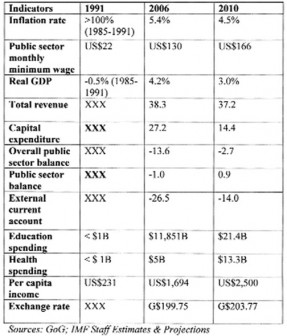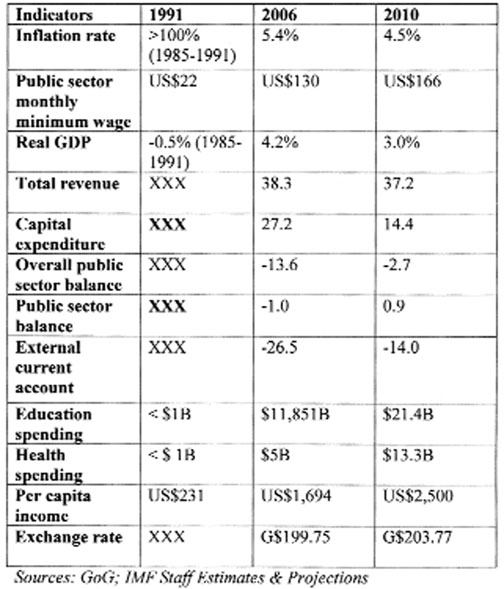Dear Editor,
A person does not have to be a People’s Progressive Party/Civic (PPP/C) member or supporter to surmise that the PPP/C will sweep the polls at the imminent 2011 national election. I say this because there are no real opposition parties; they are merely opposition on paper, especially now that WikiLeaks, which recently provided fodder for their campaigns have now done the disappearing act on them. The opposition campaigns are now devoid of this silage.
 A person can reach this conclusion opposing the opposition vis-à-vis the following: (1) the perceived coup d‘état at A Partnership for National Unity (APNU) where the Working People’s Alliance (WPA), a party without a constituency, is now at the controls, enabling the People’s National Congress Reform (PNCR) to gently step aside; (2) the persisting usual squabbles in the Alliance For Change (AFC) over its leadership, presidential candidacy, and prime ministership; (3) the other contesting parties in the 2011 election ‘also ran.’
A person can reach this conclusion opposing the opposition vis-à-vis the following: (1) the perceived coup d‘état at A Partnership for National Unity (APNU) where the Working People’s Alliance (WPA), a party without a constituency, is now at the controls, enabling the People’s National Congress Reform (PNCR) to gently step aside; (2) the persisting usual squabbles in the Alliance For Change (AFC) over its leadership, presidential candidacy, and prime ministership; (3) the other contesting parties in the 2011 election ‘also ran.’
And let us make no mistake about the fact that the PPP/C’s attractiveness to the populace is its solid public governance record and rock-solid accomplishments. The PPP/C has a few insignificant detractors with some favorite pastimes, such as, cherry picking and overgeneralization. Don Lindsay refers to cherry picking as, where we only present those cases to match our own biases, to sustain our own pre-existing beliefs.
Noted research methods author Babbie argues that when a person rummages around for patterns among what we see all around us, we frequently take for granted that a few misleading cases really are evidence of some general pattern; in doing this, we overgeneralize. Babbie believes that a danger of overgeneralization is that it could result in selective observation. The end result of cherry picking and overgeneralization is the presentation of erroneous information to the masses and this is what the PPP/C detractors invariably do.
Notwithstanding these silly detractions and to show just a few progressive macroeconomic developmental aspects for Guyana, it is worth taking a peek at what happened in 1991, 2006 and 2010:
The table shows some level of macroeconomic stability amid unassuming growth, with promising prospects for the Guyana economy, seen within the context of an erratic global economy. And I did not even mention tax threshold, Low Carbon Development Strategy, the Grow More Campaign, foreign direct investments, export revenues, poverty statistics and sector performance.
The PPP/C’s policies and programmes suggest that the key to enhancing the future development of Guyana must include creating a stable macroeconomic environment, inter alia. In the age of globalization and trade liberalization, developing economies continue to face external economic shocks which negatively impact their growth, inflation, exchange rate and the general monetary and fiscal system. Therefore, stability of the macroeconomic fundamentals is vital for sustainability and viability of the Guyana economy.
Nonetheless, the dailies will point to corruption and narco-trafficking as a counter to this macroeconomic stability in Guyana. Nevertheless, which country is virgin territory when it comes to narco-trafficking and corruption? These deviant phenomena are weighted with global dynamics that require global solutions. But people would be ill advised to fall prey to the detractors, who present merely non-evidence-based information, and miss the opportunities that macroeconomic stability affords in resource-constrained countries such as Guyana. The people are aware of the PPP/C’s role in sustaining this macroeconomic stability, as they advance toward this 2011 election.
Yours faithfully,
Prem Misir










